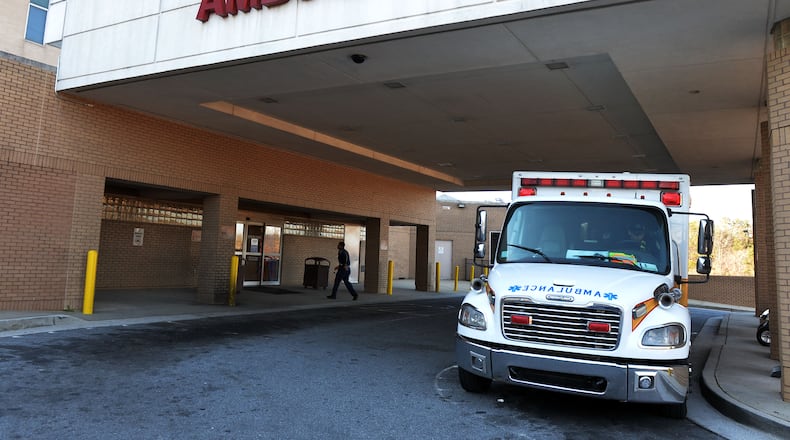When eight-year-old Ethan Hall broke his leg after falling from a slide near his home in southwest Atlanta last month, his father couldn’t have imagined it would take an hour and a half for an ambulance to arrive and another two before it finally deposited his son in the care of doctors.
Unfortunately, Ethan’s story isn’t unique in Georgia, where lethargic government oversight and conflict of interest has corrupted the provision and delivery of emergency medical services in virtually every corner of our state.
The Georgia Department of Public Health loosely regulates the delivery of ambulance services, but the agency pointedly does not provision it. Instead, the state has been divided into 10 autonomous regions for which unelected, unchecked panels have been empowered to hire and fire providers at will.
The system was designed to keep decisions closest to communities and taxpayers, mandating that two-thirds of these panels be appointed by county commissioners. But thanks to weak oversight protections, a system that was conceived to protect the taxpayer has been perverted over the years to abuse them instead.
Unlike most of the country, Georgia law doesn’t explicitly bar private ambulance company executives from serving on public health task forces that dole out millions in taxpayer dollars to ambulance companies. It’s no coincidence that ambulance executives have contributed more than $100,000 to state and local politicians, including county commissioners, according to campaign disclosures.
In fact, of the state’s 10 ambulance selection panels, at least four regions include representatives from ambulance companies — even when their companies service the same region. Once they get on these panels, they can use their preferred status to suppress fair competition in the market by protecting their incumbency and expelling rivals that lack representation.
It would appear that influenced how one metropolitan Atlanta ambulance provider, Grady Emergency Medical Services, came into its good fortune this year when the area’s EMS panel recommended it replace the previous provider.
It is important to mention that the panel included not one but two ambulance company executives, including one from Grady EMS, but none from the provider it voted to remove. It is also important to know that Grady EMS was the same ambulance provider responsible for making young Ethan Hall wait three hours in pain before finally delivering him to the care of a hospital.
When the market is driven, not by competition and merit, but connections and political gamesmanship, we should all be concerned. But that’s the state of ambulance services in Georgia today, and it’s why some of Georgia’s most influential activists and advocacy organizations have come together to support legislative reforms to protect taxpayers and public health.
The initiative, called the Georgia Ambulance Transparency Project, includes Common Cause of Georgia, Georgia Conservatives in Action, Georgia Ethics Watchdogs and Main Street Patriots, among others. Together they’ll educate policymakers and patients on the imperative to reform emergency medical services in the state.
The decades-old system on which Georgia relies to select ambulance providers has become corrupted by those who profit at the expense of good government and public health. Georgia families deserve better and we mean to fight for it.
Julianne Thompson, an activist for ethics and good government issues, is a spokesperson for the Georgia Ambulance Transparency Project.
About the Author
Keep Reading
The Latest
Featured



